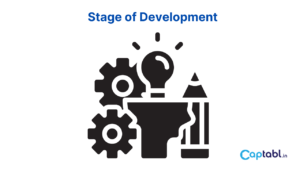Introduction:
Determining the valuation of a startup is a crucial step in the investment process. Valuation serves as the basis for negotiating terms, assessing the potential return on investment, and understanding the startup’s worth. However, Value of a Startup can be challenging due to its unique characteristics and early-stage nature.
In this article, we will explore key methods and factors to consider when determining the valuation of a startup.
Evaluate the Market Potential:


Assess the startup’s target market and evaluate its size, growth rate, and potential. Consider the market dynamics, competitive landscape, and the startup’s ability to capture market share. A larger market opportunity with high growth potential can justify a higher valuation.
Review Comparable Startup Valuations:
Research and analyze the valuations of similar startups in the industry. Look for companies with similar business models, market focus, and growth stages. Review public information, news articles, and investment reports to gather data on comparable startup valuations. This information can provide insights into industry benchmarks and help you gauge the relative value of the startup you are evaluating.
Analyze Financial Performance:
Assess the startup’s financial performance and projections. Review historical financial statements, revenue growth, profitability, and cash flow. Evaluate key financial metrics such as gross margin, burn rate, and customer acquisition cost. Consider the startup’s potential for scalability and the sustainability of its financial performance.
Assess Intellectual Property and Competitive Advantage:
Evaluate the startup’s intellectual property (IP) assets, including patents, trademarks, copyrights, or proprietary technology. Consider the uniqueness and strength of the IP and its potential to provide a competitive advantage. Valuable IP and a strong market position can positively impact the startup’s valuation.
Evaluate Team and Execution:
Consider the capabilities, experience, and track record of the startup’s management team. Evaluate their expertise, industry knowledge, and ability to execute the business plan. A strong and experienced team can enhance the startup’s valuation by instilling confidence in its potential for success.
Stage of Development:


Consider the stage of development of the startup. Early-stage startups typically have higher risks and uncertainties, which can result in lower valuations. As the startup progresses through different stages, such as seed, early growth, or late-stage, its valuation may increase as it achieves milestones and demonstrates progress.
Apply Valuation Methods:
There are various methods to Value of a Startup, including the Venture Capital (VC) Method, Discounted Cash Flow (DCF) Analysis, Market Multiple Analysis, and Scorecard Method. Each method has its strengths and limitations. It is advisable to use a combination of these methods, considering the specific characteristics of the startup and the industry.
Seek Professional Advice:
Engage professional advisors, such as valuation experts, investment bankers, or experienced investors, to provide guidance and expertise in valuing startups. Their industry knowledge and expertise can help navigate the complexities of startup valuation and provide valuable insights.
Conclusion:
Valuing a startup requires careful consideration of multiple factors, including the market potential, financial performance, competitive advantage, team expertise, and the stage of development. By evaluating these factors and applying appropriate valuation methods, investors can determine a reasonable valuation range for a startup.
It is important to remember that startup valuations are subjective and can vary based on investor perceptions, market conditions, and negotiation dynamics. Seeking professional advice and conducting thorough due diligence can help in making informed investment decisions and maximizing the potential return on investment.
